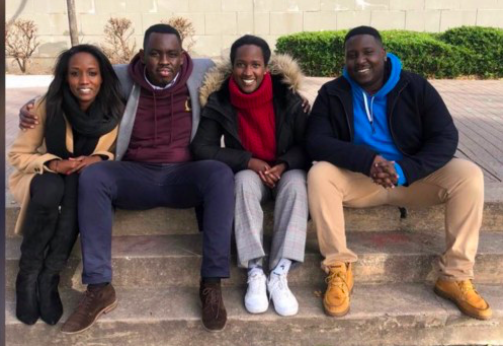By Jean-Paul Nsonzerompa
August 31, 2020 was one of the worst days of my life. I was in denial for hours. It was the day that Paul Rusesabagina — my uncle, mentor, and the man who became my father — was kidnapped from Dubai and surfaced under arrest in Kigali, Rwanda. 95 days later, he remains unjustly imprisoned on false charges, and my heart is still bleeding.
Paul’s courage, faith, and activism around the world have earned him countless awards — and many enemies. He has used his story of saving 1,268 people during the Rwandan genocide by sheltering them at the hotel he managed to inspire people across the world to fight for dignity, justice, and human rights. But for me, he means even more than that outspoken heroism. Like many people in Rwanda, I lost one of my parents during the genocide — my father. Living with Paul Rusesabagina helped to ease the unfathomable pain of losing my own father. I lived with him for several years, and he played a pivotal role in teaching me about grace, courage, love, and strength. He was my rock, and the lessons I watched him live out have deeply impacted me to this very day.
When I was in secondary school, I broke my foot and was recovering for nearly two months. He asked me to move in with him during this period because his home was near my school, so it would be less of a trek for me and I would have support close by. He got up every morning to drive me to school and was back at 4pm sharp to pick me up. He was never a minute late. He had a lot of work on his plate at the time, but he did this anyway because he wanted to make sure I felt safe, secure, and loved. He is a man of values and principles who loves his family more than anything else in the world. I saw him model many of those values and principles through his words and his courageous actions, and he took every opportunity to try to instill those values in me — including the value of learning how to forgive.
I need him to come home so that he can explain to me how to forgive the Rwandan government right now. Because on my own, I am unable to forgive them right now for what they have inflicted on him — kidnapping him, tying him up for days, blindfolding him, imprisoning him on false allegations, preventing him from using his own lawyers for 92 days, denying his medical bail despite his fragile health. This is just the latest, ugliest example of a fight that has been going on for nearly two decades. He spoke the truth and demanded human rights, even if it wasn’t popular. He never flattered the ego of the Rwandans, he refused their offers to become an ambassador or a minister. He decided to fight injustice and social inequality and advocate for peace, reconciliation, and the protection of human rights. Even when he was sick with cancer and going through treatments, he remained strong, despite continued harassment from the Rwandan government. I never saw a single day where he lost strength. He is the most courageous person I’ve ever known who, despite the monumental struggles he’s faced and the incredible darkness he’s fought, still believes in redemption and forgiveness.
He has a powerful gift of being able to stay strong and endure the worst moments in history. He has a soul that never loses faith. His words, thoughts, and deeds are always in harmony with his drive for fairness, justice, and human decency. Despite the pain that the Rwandan government has inflicted on him, he was always a staunch advocate to us that our efforts for peace must be extended to those who have hurt us, as well.
His love for us, for humanity, and for the truth has given us strength to lean on in this moment. It has mobilized us to fight for his release — a release that we will win, because we have the truth on our side.
Paul Rusesabagina is my hero, my role model, and my mentor. It has been 95 days since my entire family’s life changed. When he comes home, I wonder if he will teach me to forgive them in less.





























































